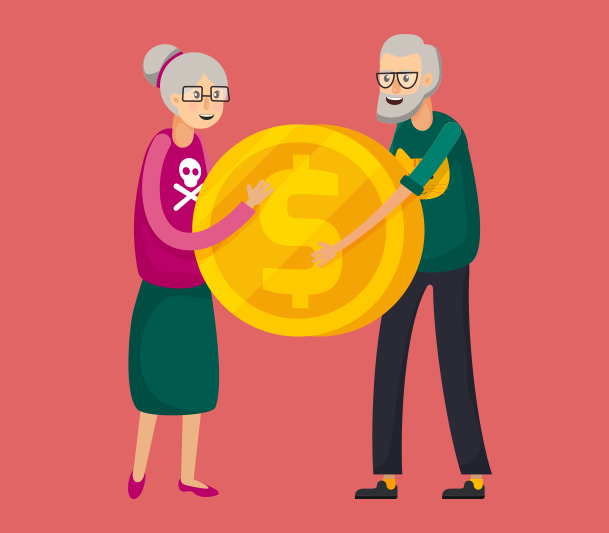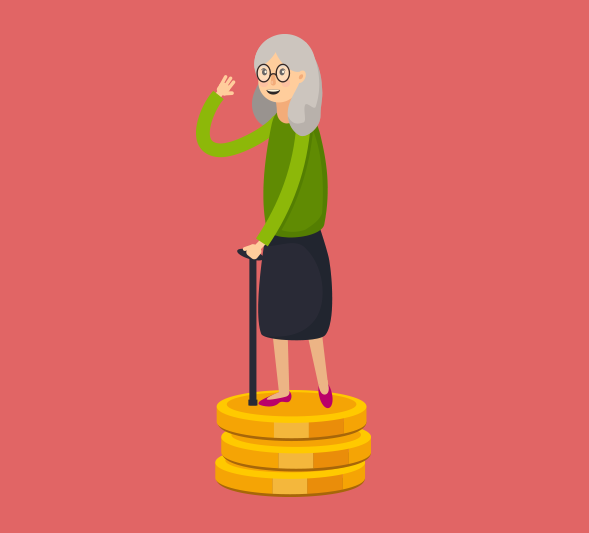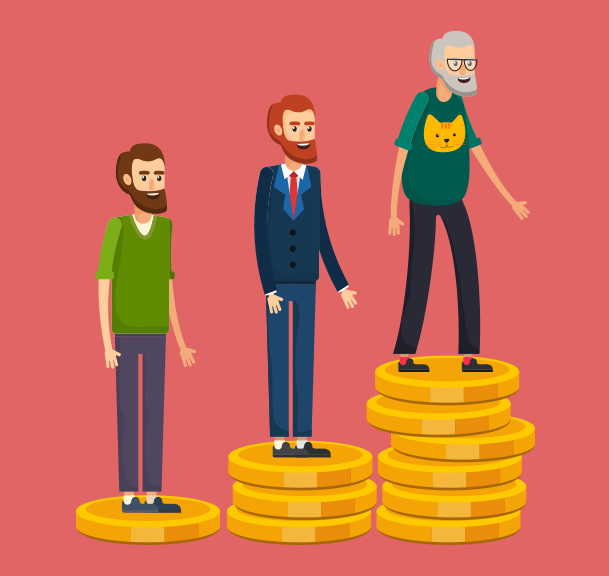
Retirement
Retiring used to be like riding in an airplane. You got on the plane with all the other passengers and left the business of flying the plane to a professional. Those were the days when pensions ruled. Employers managed their worker’s retirement money and guaranteed them an annual payment when their working days were done. Today, most people have to fly the plane on their own. Pensions have mostly been replaced by 401(k) plans.

Are People Ready to Retire?
Employees are responsible for managing themselves. These "defined contribution plans" are now twice as common as "defined benefit" plans like pensions. More people than ever are flying their own retirement planes. But it turns out most don’t know how to work the controls. The majority of workers don’t feel they’re on track to meet their savings goals.

One reason this may be is the job market, said Monica Dwyer, a certified financial planner for Harvest Advisors. Inflation-adjusted wages sunk after the Great Recession and were slow to recover.
"It hasn’t been until recently that we’ve even started to see any kind of wage gain," she said.
Because of that, it’s been difficult for many people to put aside enough money toward retirement. But saving enough is only part of the equation. Retiring requires people to invest their money wisely as well.
Dwyer has seen many people make mistakes along the way: Not investing at all, investing too aggressively, not investing aggressively enough.
In addition to working their day jobs, the shift to defined contribution plans has turned much of the workforce into part-time investment managers.
What happened to pensions?
Dwyer’s father worked a union job with a pension. The union required workers to contribute to the pension, and Dwyer’s father put a little extra aside to be especially prepared for retirement. When he stopped working at 55, he was able to earn more each year from his pension than he did from his salary. But the decline in union membership took a toll on pensions, as did a change in the way people think about work. While many people stuck with the same company for a long time in the past, today changing jobs is seen as a way to get ahead. "It used to be you would work for a company for a really long time. It was your career," Dwyer said. "You took care of the company and the company took care of you." The Pension Protection Act of 2006 was meant to shore up struggling up pensions by tightening up funding requirements. "They were trying to strengthen pension plans but what ended up happening is that for many companies, they just couldn’t keep up with the requirements," Dwyer said. Today, many companies have ditched pensions in favor of defined contribution plans like the 401(k). In doing so, they’ve put their workers at the controls of their retirement — transferring much of the risk in the process. Workers can no longer rely on companies to pick up the slack if their retirement investments underperform. The most powerful force in saving for retirement is time. "There’s a huge benefit to the time value of money," Dwyer said. "The earlier you start, you’re going to be way better off." And the longer you wait, the harder it becomes to save enough.

